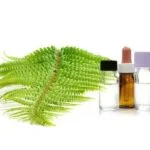Does aromatherapy work for people who cant smell? Aromatherapy is a holistic healing treatment that uses natural plant extracts to promote health and well-being. It has been used for centuries in various cultures to address a wide range of physical and emotional ailments.
The use of essential oils in aromatherapy is believed to stimulate the sense of smell, triggering the body’s natural responses to the aroma. In this article, we will explore the concept of aromatherapy and its potential benefits for individuals who cannot smell due to anosmia.
Aromatherapy works on the principle that certain scents can have a direct impact on our mood, emotions, and even our physical health. The sense of smell is closely linked to the limbic system, which is the part of the brain that controls emotions, behaviors, and memory.
When essential oils are inhaled, they can trigger responses from the limbic system, leading to various physiological effects. However, for individuals with anosmia – the inability to perceive odor – the question arises: can aromatherapy still be effective?
This section will delve into the science behind aromatherapy and explore how it works on the body. We will also discuss how individuals with anosmia may still benefit from aromatherapy through alternate sensory experiences. Additionally, we will review existing research on the effectiveness of aromatherapy for those who cannot smell and provide recommendations for selecting essential oils that may still have an impact on their well-being. Stay tuned as we uncover more about this fascinating topic.
The Science Behind Aromatherapy
Aromatherapy is the practice of using essential oils and aromatic compounds to promote overall health and well-being. The concept of aromatherapy is rooted in the idea that certain scents can have a therapeutic effect on the body and mind. But how does aromatherapy actually work, and what role do olfactory receptors play in this process?
Understanding Olfactory Receptors
Olfactory receptors are specialized nerve cells located in the nasal cavity that are responsible for detecting different smells. These receptors send signals to the brain, which then interprets the information and allows us to perceive different scents. When it comes to aromatherapy, the stimulation of these olfactory receptors by inhaling essential oils is believed to trigger various physiological and psychological responses in the body.
Mechanisms of Action
When essential oils are inhaled, their aromatic molecules are thought to interact with the olfactory receptors, sending signals to the limbic system – the part of the brain involved in emotions, memories, and behavior. This interaction is believed to influence various physiological processes, such as heart rate, blood pressure, stress levels, and even immune function. Additionally, some essential oils may also have direct pharmacological effects when absorbed into the bloodstream through topical application or ingestion.
Impact on Non-Smellers
For individuals who can’t smell due to anosmia, it may seem counterintuitive to consider aromatherapy as a viable treatment option. However, research suggests that even those who can’t detect scents through their sense of smell may still benefit from aromatherapy through alternate sensory experiences. This could include applying essential oils topically to experience their therapeutic effects through skin absorption or using diffusers for inhalation therapy without relying on olfactory perception.
Aromatherapy for Individuals With Anosmia
Understanding Anosmia and Its Effects
Anosmia refers to the loss of the sense of smell, which can occur due to various factors such as nasal congestion, head injury, or certain medical conditions. For individuals with anosmia, the inability to smell can have profound effects on their quality of life, impacting their ability to taste food, detect hazards (such as gas leaks), and experience the emotional pleasures associated with pleasant scents. This raises the question: does aromatherapy work for people who can’t smell?
Potential Benefits of Aromatherapy for Anosmia
While it may seem counterintuitive to use aromatherapy for individuals who can’t smell, research suggests that there are potential benefits beyond olfactory perception. Aromatherapy involves the use of essential oils derived from plants, which contain chemical compounds that may have physiological effects when inhaled or applied to the skin. Therefore, even without the ability to smell, individuals with anosmia may still experience therapeutic benefits from aromatherapy through absorption into the bloodstream and interaction with body systems.
Alternate Sensory Experiences
For individuals with anosmia who are unable to benefit from traditional olfactory experiences of aromatherapy, alternative sensory methods can be explored. This includes tactile application of essential oils through massage or topical use, as well as visual and auditory experiences that can complement the use of aromatherapy. By engaging other sensory modalities, individuals with anosmia can still access the potential therapeutic effects offered by aromatherapy.
Alternate Sensory Experiences
Aromatherapy is often associated with the sense of smell, but individuals with anosmia may wonder if they can still benefit from this therapeutic practice. Fortunately, there are alternate sensory experiences that can allow individuals who can’t smell to still experience the therapeutic effects of aromatherapy. Here are some ways for non-smellers to explore and benefit from aromatherapy:
1. Touch: Aromatherapy massage can provide a tactile experience that allows individuals to feel the therapeutic properties of essential oils on their skin. The gentle pressure and soothing scents can promote relaxation and stress relief, even without the sense of smell.
2. Sight: Visual stimulation can also enhance the aromatherapy experience for individuals who can’t smell. Observing the vibrant colors of essential oils or using diffusers with soft lighting can create a calming atmosphere, contributing to the overall wellness benefits of aromatherapy.
3. Breathing exercises: While individuals with anosmia may not be able to smell the essential oils, they can still benefit from deep breathing techniques combined with aromatherapy practices. Inhaling deeply and focusing on the physical sensations brought by each breath can help promote relaxation and mindfulness.
4. Incorporating other senses: Individuals who lack the sense of smell may find that combining aromatherapy with other sensory experiences, such as listening to soothing music or feeling a soft fabric, enhances their overall well-being.
Research specifically addressing how these alternate sensory experiences impact the effectiveness of aromatherapy for non-smellers is still limited. However, anecdotal evidence suggests that these methods can still offer valuable therapeutic benefits for individuals who can’t smell due to anosmia or other olfactory disorders. Despite the inability to perceive scent, it is possible for non-smellers to experience relaxation, stress reduction, and emotional well-being through alternative sensory experiences in conjunction with aromatherapy practices.
Research on the Effectiveness of Aromatherapy for Anosmia
Aromatherapy is a widely used alternative medicine that utilizes essential oils to promote physical and psychological well-being. While traditionally associated with the sense of smell, there is growing interest in whether aromatherapy can still be effective for individuals who cannot smell due to anosmia. Research on the effectiveness of aromatherapy for anosmia is crucial in understanding its potential benefits for this specific group of individuals.
Scientific studies have shown that aromatherapy can still have beneficial effects on individuals with anosmia, despite their inability to perceive scents through olfaction. The key lies in the fact that essential oils also have pharmacological properties that can interact with the body through other mechanisms beyond smell. These mechanisms include absorption through the skin and inhalation into the respiratory system, allowing the essential oil compounds to exert their therapeutic effects directly on the body, bypassing the need for olfactory perception.
Evidence supporting the use of aromatherapy for individuals with anosmia also suggests that alternate sensory experiences can play a role in enhancing its effectiveness. While scent perception is limited or absent in individuals with anosmia, other sensory modalities such as touch and sight can still contribute to the overall experience of aromatherapy. This opens up possibilities for incorporating tactile and visual elements into aromatherapy practices for non-smellers, creating a multi-sensory approach to reaping its potential benefits.
- In one study published in the Journal of Alternative and Complementary Medicine, researchers found that topical application of lavender essential oil significantly reduced pain levels in patients with postoperative pain, including those with anosmia.
- Another study in the International Journal of Nursing Practice explored the use of aromatherapy massage among elderly individuals with dementia-related anosmia and found improvements in agitation and sleep quality.
- A review article in Evidence-Based Complementary and Alternative Medicine highlighted the potential benefits of inhalation therapy using essential oils among individuals who had lost their sense of smell due to various medical conditions.
Overall, while more research is needed to fully understand how aromatherapy works for people who can’t smell, existing evidence indicates that it may still offer therapeutic benefits through alternate sensory experiences and direct physiological effects on the body. As further research continues to shed light on this topic, it becomes increasingly important to consider how aromatherapy can be adapted and optimized for individuals with anosmia.
Choosing the Right Essential Oils
Aromatherapy is a popular alternative medicine that involves the use of essential oils to promote physical and mental well-being. While many people derive benefits from aromatherapy through the sense of smell, individuals with anosmia, or the inability to smell, may wonder if they can still benefit from this practice. The question then arises: does aromatherapy work for people who can’t smell?
While anosmia may limit the ability to detect scents, the therapeutic effects of essential oils can still be experienced through other sensory pathways. In fact, research suggests that certain essential oils have chemical components that can interact with the body in various ways beyond simply being inhaled. For example, topical application of essential oils can allow their beneficial compounds to be absorbed through the skin and into the bloodstream.
When choosing essential oils for individuals with anosmia, it is important to consider their potential effects beyond just their scent. Essential oils such as lavender, peppermint, and eucalyptus have been studied for their analgesic properties and ability to reduce inflammation when applied topically. These oils could be beneficial for individuals who can’t smell by providing relief from physical discomfort or promoting relaxation through skin absorption.
Furthermore, some individuals who can’t smell may still experience emotional and psychological benefits from using certain essential oils. For instance, using essential oils in a massage or applying them topically during relaxation practices like yoga or meditation could create a calming and soothing experience even without the sense of smell involved.
Therefore, while traditional methods of experiencing aromatherapy may not be accessible to non-smellers, alternative techniques such as topical application remain effective in delivering the potential benefits of essential oils.
| Essential Oil | Potential Benefits |
|---|---|
| Lavender | Relaxation and stress relief when applied topically |
| Peppermint | Analgesic properties for reducing physical discomfort |
| Eucalyptus | Anti-inflammatory effects when applied topically |
Aromatherapy Techniques for Non-Smellers
For individuals who can’t smell, the question of whether aromatherapy can still have a positive impact on their well-being is a pertinent one. While it may seem counterintuitive to use essential oils when one cannot perceive their scent, there are alternative methods for experiencing aromatherapy that can still yield therapeutic benefits.
One such method is topical application. Essential oils can be diluted in a carrier oil and applied directly to the skin. Through absorption, the beneficial properties of the oils are still able to enter the bloodstream and produce their desired effects. Additionally, the act of massaging the oils into the skin can provide a tactile and comforting experience, adding to the overall relaxation and stress-relief that aromatherapy aims to achieve.
Inhalation is another technique that non-smellers can utilize to benefit from aromatherapy. By using a diffuser or steam inhalation, individuals with anosmia can still experience the potential mood-boosting and stress-reducing effects of certain essential oils. Inhalation allows for direct interaction with olfactory receptors in the nasal cavity, even if there is no sense of smell present.
These alternative methods open up possibilities for individuals with anosmia to participate in and benefit from aromatherapy. While further research may be needed to fully understand how these techniques work for non-smellers, they offer promising avenues for improving overall well-being in this population.
| Aromatherapy Techniques | Non-Smellers Benefits |
|---|---|
| Topical Application | Therapeutic effects through absorption; Tactile experience; Relaxation and stress relief |
| Inhalation | Mood-boosting; Stress reduction; Direct interaction with olfactory receptors |
Conclusion
In conclusion, the use of aromatherapy for individuals who can’t smell due to anosmia holds potential benefits that should not be overlooked. While the traditional method of inhaling essential oils may not have a direct impact on those with anosmia, there are alternate sensory experiences and techniques that can still offer therapeutic effects.
This includes topical application, which allows the body to absorb the essential oils through the skin, as well as inhalation methods that do not rely solely on the sense of smell. Additionally, research has shown promising results in supporting the effectiveness of aromatherapy for individuals with anosmia, indicating that it may still have a positive impact on their wellbeing.
Furthermore, choosing the right essential oils and exploring alternate sensory experiences are important considerations when using aromatherapy for individuals who can’t smell. Certain essential oils may still have an impact on the body through their chemical properties, regardless of whether they can be smelled or not. Additionally, incorporating other senses such as touch and sight into the aromatherapy experience can provide non-smellers with a holistic therapeutic experience.
Overall, while more research is needed to fully understand the extent of aromatherapy’s benefits for individuals who can’t smell, it is clear that there is potential in exploring this topic further. The use of aromatherapy for non-smellers opens up new possibilities for harnessing its therapeutic effects and promoting overall wellness in diverse populations.
By continuing to study and develop alternative methods and techniques tailored for individuals with anosmia, we can continue to unlock the full potential of aromatherapy as a complementary approach to health and wellbeing.
Frequently Asked Questions
What Aromatherapy Is Good for Loss of Sense of Smell?
Aromatherapy can be beneficial for loss of sense of smell by using essential oils like rosemary, eucalyptus, and lemon. These scents can help stimulate the olfactory nerves and potentially improve the ability to detect odors.
What to Do if I Can’t Smell Anything?
If you can’t smell anything, it is important to first determine the underlying cause with a medical professional. In the meantime, you can try inhaling deeply near strong-smelling substances or use nasal irrigation to potentially improve your ability to smell.
How Do You Regain Sense of Smell?
Regaining sense of smell may involve seeking medical treatment for any underlying issues, such as nasal congestion or sinus infections. Additionally, practicing daily sniffing exercises and being more mindful of smells in your environment can potentially aid in retraining the olfactory system.

Are you looking for a natural way to improve your health and wellbeing?
If so, aromatherapy may be the answer for you.





